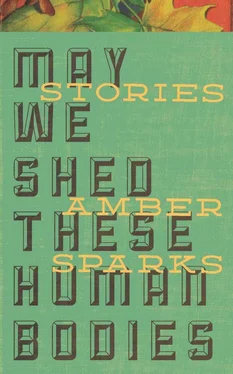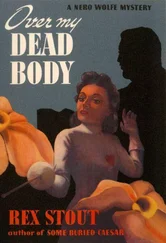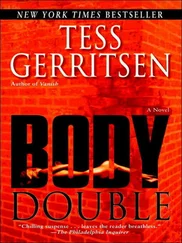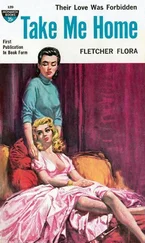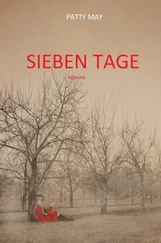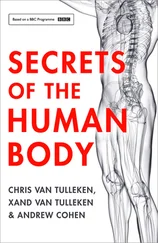Amber Sparks - May We Shed These Human Bodies
Здесь есть возможность читать онлайн «Amber Sparks - May We Shed These Human Bodies» весь текст электронной книги совершенно бесплатно (целиком полную версию без сокращений). В некоторых случаях можно слушать аудио, скачать через торрент в формате fb2 и присутствует краткое содержание. Год выпуска: 2012, Издательство: Curbside Splendor Publishing Inc., Жанр: Современная проза, на английском языке. Описание произведения, (предисловие) а так же отзывы посетителей доступны на портале библиотеки ЛибКат.
- Название:May We Shed These Human Bodies
- Автор:
- Издательство:Curbside Splendor Publishing Inc.
- Жанр:
- Год:2012
- ISBN:нет данных
- Рейтинг книги:5 / 5. Голосов: 1
-
Избранное:Добавить в избранное
- Отзывы:
-
Ваша оценка:
- 100
- 1
- 2
- 3
- 4
- 5
May We Shed These Human Bodies: краткое содержание, описание и аннотация
Предлагаем к чтению аннотацию, описание, краткое содержание или предисловие (зависит от того, что написал сам автор книги «May We Shed These Human Bodies»). Если вы не нашли необходимую информацию о книге — напишите в комментариях, мы постараемся отыскать её.
May We Shed These Human Bodies peers through vast spaces and skies with the world's most powerful telescope to find humanity: wild and bright and hard as diamonds.
May We Shed These Human Bodies — читать онлайн бесплатно полную книгу (весь текст) целиком
Ниже представлен текст книги, разбитый по страницам. Система сохранения места последней прочитанной страницы, позволяет с удобством читать онлайн бесплатно книгу «May We Shed These Human Bodies», без необходимости каждый раз заново искать на чём Вы остановились. Поставьте закладку, и сможете в любой момент перейти на страницу, на которой закончили чтение.
Интервал:
Закладка:
When Esther gets home today, she finds Ellie sitting by the window in her bra and underwear, combing her long blonde hair like a mermaid. People say this of Ellie: she’s so beautiful it just breaks your heart. What they should say, thinks Esther, is: she’s so beautiful it just breaks you. Ellie’s beauty is a trap. A trap, a trap, a trap. Lots of people (men, mostly) find her madness quite charming because she is beautiful. Until she stabs them in the arm, or sets fire to their car, or cuts up all their clothing with pinking shears.
Ellie is sometimes mildly, benignly happy when she is taking her medication and having strange little love affairs with whoever happens by. Current Lover, as she calls him, is Randy, their mailman. Esther thinks he is a serial killer; he is sandy-haired and small-eyed, big black glasses on a pitted nose. She would love to paint him, but her father threw out her paints long ago, when they came to live here. He told her to make art out of pasta instead. It was cheaper.
She would love to paint her father, too. She would fill the canvas with vibrant, violent reds, cadmium red and vermillion, and rose madder around the edges for contrast. Then she would mix a fine chromatic black and paint her father’s silhouette right in the center, beaked nose and tight mouth folded shut in the middle of all that fire. She has made many imaginary paintings of him over the years, hanging only in her imaginary gallery.
Some days, Ellie is not there at all. She is missing, a void, an open O mouth. On these days Esther sits near Ellie and clutches her from time to time, afraid that if she lets go her sister will grow weightless and fly away. I saw a blue bowl of sky, Ellie says, and then the sky opened up and blood poured out. Her eyes are shiny, plasticized. She is already flown.
Esther grabs the afghan from the couch and drapes it over Ellie’s shoulders. She pulls Ellie up by her arms and shoves her toward the bedroom, away from the window. She is not afraid of the neighbors. She’s afraid of their father, that he might suddenly, finally see Ellie, and be forced to make a decision about her presence or absence.
Shortly before she disappeared, their mother called Esther, because Ellie was trying to lead religious meetings in the street. Their mother’s depression was so bad that some days she couldn’t get out of bed. She was afraid she wouldn’t be able to take care of Ellie if things got worse.
She’s not taking her medication, their mother told Esther.
Are you? Esther asked.
Her mother sighed. Esther had learned this long habit from her. I’ll come up next weekend, Esther told her. We’ll get this all figured out.
But by the next weekend, her mother was a ghost. By the next weekend, her mother had blown away and feathered the atmosphere. Her mother had sprinkled the soil with her powdered heart. Her mother had left her bones behind in an invisible urn. Her mother had gone. What did it matter how? And so Esther brought Ellie back to their father’s home, and ignored the way her father ignored Ellie. Correction: has never seen her at all.
It isn’t because Ellie is mad that their father is blind to her. It’s because she isn’t a boy. If she were a boy, she would wear her real name, her given name: Elijah. She would be still be mad, but she would be a seer, a prophet, and so it would be a good madness. Everything would be good. Their father would never have left their mother to crumble up and blow away, would never have thrown his eldest into the car like a sack of stones and built his own family out of disappointment. Esther, too, would be different. She would be an artist, an instrument of no one and nothing but her own inspiration. She would fill canvases with lilies and roses and violets and never ever human faces with their perpetual disappointment. Everything would be good.
Did you love Mom? Esther asks her father. He frowns like he is trying to remember something. His gargoyle face is perfect for preaching, but bad for loving. Esther finds it impossible to love. The nose is too sharp, the cheeks too sunken. It is the face of an ascetic, a man who lives alone with his god and his demons. Now he shakes his head, like he’s coming out of a vague, bad dream, and continues on with his sermon. Esther shrugs and keeps typing on the old Remington. Her father thinks computers are the devil’s code machines.
He works long hours to fight the devil. He doesn’t usually come home until the whole town is dark and closed and dead. He doesn’t usually come home until he’s discovered some new way to save souls. Ellie is afraid of the dark, so most days Esther leaves her father behind in the church and heads home before dusk.
When she gets home tonight, Ellie is gone.
Don’t be an idiot, Esther tells herself as she looks in every impossible place, like under the towels and in the trash. She thinks of her mother — there and then not there — in places no policeman or detective agency could turn up. She wonders if the women in this family are meant to disappear, if they have some sort of rare gene that leaves them predisposed to dissolving at a specific time, like a radio frequency. She wanders around the apartment, touching hard surfaces to reassure herself that she, at least, is still solid.
Then the door slams and Ellie walks in, wearing nothing but her bathrobe and looking frozen and lost.
Where have you been? Esther asks, furious. Where are your clothes? Why are you wandering around town in your bathrobe, like some crazy homeless person?
Ellie seems vacant, confused, but she turns to Esther and says, you sound just like Mother.
But I’m not, Esther says. Her voice is so polite and yet it sounds like a scream in her head. I’m not gone.
You should be; it’s a riot, says Ellie, and falls to the floor in a heap of bathrobe and hair.
At the hospital they say it’s just shock from the cold; Ellie will be fine. Well, fine, they say, and shrug their shoulders, as if to suggest the fluid meaning of the term. As if to suggest that maybe she should look up the definition.
Ellie’s room at their mother’s house had originally been covered floor-to-ceiling with paintings and sketches of angels, aliens, and all kinds of strange abstracts. She and Esther share a talent in their fingers but not preferred subject matter. There were rules and rituals and charts taped up over the remaining spaces, and all the metal surfaces were covered in plastic wrap.
When Esther came back, after their mother disappeared, all the paintings and charts and plastic had been torn down. Ellie had made a sort of nest out of them. She was filthy and blank and she didn’t speak for a month.
The police never found a body. They never found anything at all, not ashes, an urn, a bone chip or fragment. Not even a fingernail or a skin flake. When they found out about the depression they mostly stopped looking. Esther had to be content with leaving her life wide open, like a broken door. Ellie never said a word about what had happened, if she even knew. Before they left they rented the dumpster, and little by little they burned the skins of the mother and children they’d shed years before. They’d been keeping them in cold storage without even realizing.
They won’t have to do the same when their father dies. He owns almost nothing and would certainly leave nothing of himself behind; he is already wrapped in the world after this one.
Esther gives her father the wrong sermon before the Sunday service. It’s the one from last Sunday instead. He’s forced to improvise. She has done this on purpose, though her father can’t possibly know that; still, she has to endure his rare rage once they are safely behind the doors of the office. She feels like a child in trouble at Sunday School, especially when she sees Jesus staring reproachfully down at her from his dried-pasta cross. She imagines Jesus isn’t so much mad at her as he is annoyed at being made of macaroni.
Читать дальшеИнтервал:
Закладка:
Похожие книги на «May We Shed These Human Bodies»
Представляем Вашему вниманию похожие книги на «May We Shed These Human Bodies» списком для выбора. Мы отобрали схожую по названию и смыслу литературу в надежде предоставить читателям больше вариантов отыскать новые, интересные, ещё непрочитанные произведения.
Обсуждение, отзывы о книге «May We Shed These Human Bodies» и просто собственные мнения читателей. Оставьте ваши комментарии, напишите, что Вы думаете о произведении, его смысле или главных героях. Укажите что конкретно понравилось, а что нет, и почему Вы так считаете.
